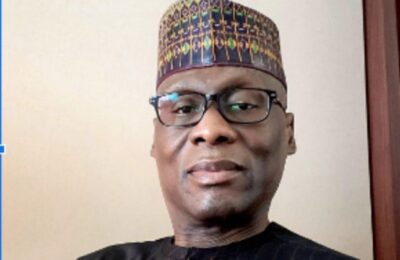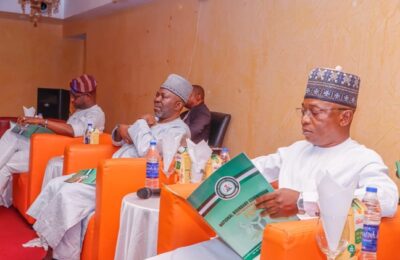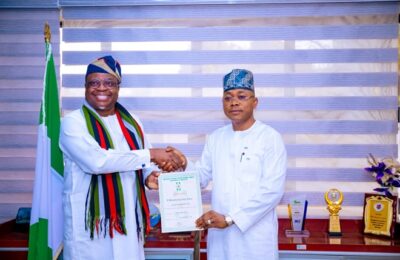By Musa Bakare
The road to the presidency in 2023 for Asiwaju Bola Ahmed Tinubu was one of the most turbulent and politically vicious in Nigeria’s democratic experience. From within and outside his own political party, forces coalesced with a singular mission: to block his ambition. Yet, against all odds, Tinubu emerged victorious, his triumph a powerful testament to divine will, strategic resilience, and the unwavering support of the Nigerian electorate.
From betrayal by political allies to covert sabotage within the All Progressives Congress (APC), from economic ambushes to legal distractions, media propaganda, and even cross-border smear campaigns, the attacks came in waves—none of which prevailed.
One of the earliest warning signs came with the removal of Comrade Adams Oshiomhole as National Chairman of the APC, a move seen by many as a calculated attempt to weaken Tinubu’s growing political structure. Strikingly, this opposition did not arise from outside, but from within the very house he helped to build.
From the moment the APC assumed office on May 29, 2015, treacherous internal coalitions began to form. Driven by fear of Tinubu’s rising influence and eventual ascendancy, these groups quietly set in motion plans to derail his path to Aso Rock.
The Edo State gubernatorial loss became a symbolic climax of the betrayal, where internal sabotage by APC elements aligned with the opposition resulted in a shocking defeat to the People’s Democratic Party (PDP). It was a devastating political blow—not just in electoral terms, but as a moral attack on party loyalty and integrity.
Then came the naira redesign debacle, orchestrated by then-Central Bank Governor Godwin Emefiele. The artificial cash scarcity that followed crippled small businesses and disrupted social and political activities nationwide. The timing and manner of its implementation led many Nigerians to believe it was an intentional economic tool to undermine Tinubu’s electoral base.
The political theatre reached a new height when Rotimi Amaechi, a former Rivers State Governor and one-time Minister of Transportation, staged a widely publicized jogging display around the Port Harcourt Stadium. Many interpreted it as a veiled insult, mocking Tinubu’s health and fitness in a brazen show of disrespect.
As if domestic sabotage wasn’t enough, the opposition launched a coordinated international character assault. Their operatives went digging through archives in the United States and at the University of Chicago, recycling long-dismissed allegations of drug-related offenses and certificate forgery, a desperate attempt to criminalize a man who had been publicly cleared.
But perhaps the most painful of all were betrayals by Tinubu’s political protégés, individuals who rose to prominence under his guidance but turned against him, choosing short-term personal gain under the previous administration. Their treachery cut deep.
Campaign platforms across Nigeria soon turned into arenas of character assassination, where falsehoods, mockery, and vitriol reigned. But Tinubu endured. Unshaken and focused, he kept faith with his mission and vision.
Despite betrayal, sabotage, and a global smear campaign, his victory stood as a triumph of destiny and the Nigerian people’s resolve. God’s will prevailed. Bola Ahmed Tinubu was declared the winner of the 2023 presidential election and was duly sworn in as the President of the Federal Republic of Nigeria.
His victory was not just political, it was spiritual, prophetic, and providential.
As the 2027 general election approaches, the same recycled actors, now rebranded and repackaged, have regrouped in desperation. But let it be firmly stated: no political coalition, no matter how bitter or boastful, can override the will of God or the mandate of the Nigerian people.
Not the desperate ambitions, not the theatrics, nor the bitterness will stand in the way of President Tinubu’s re-election.
Ultimately, only God determines leadership. And with His enduring grace, and the strong will of the Nigerian electorate, President Bola Ahmed Tinubu shall be re-elected in 2027.
– Musa Asiru Bakare, Foundation Member, All Progressives Congress (APC),Member, Tinubu Support Group (TSG), writes from Lokoja, Kogi State.




